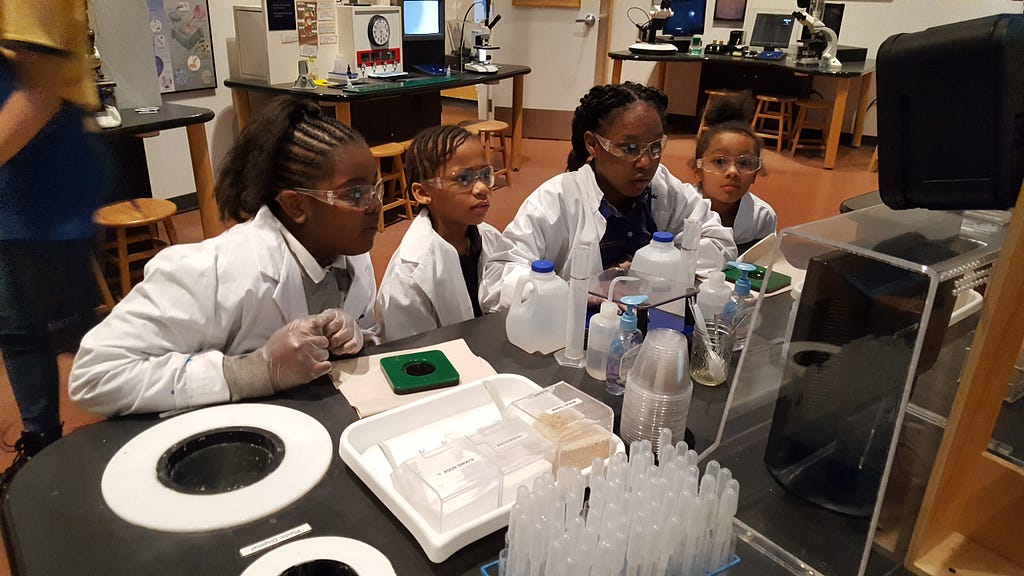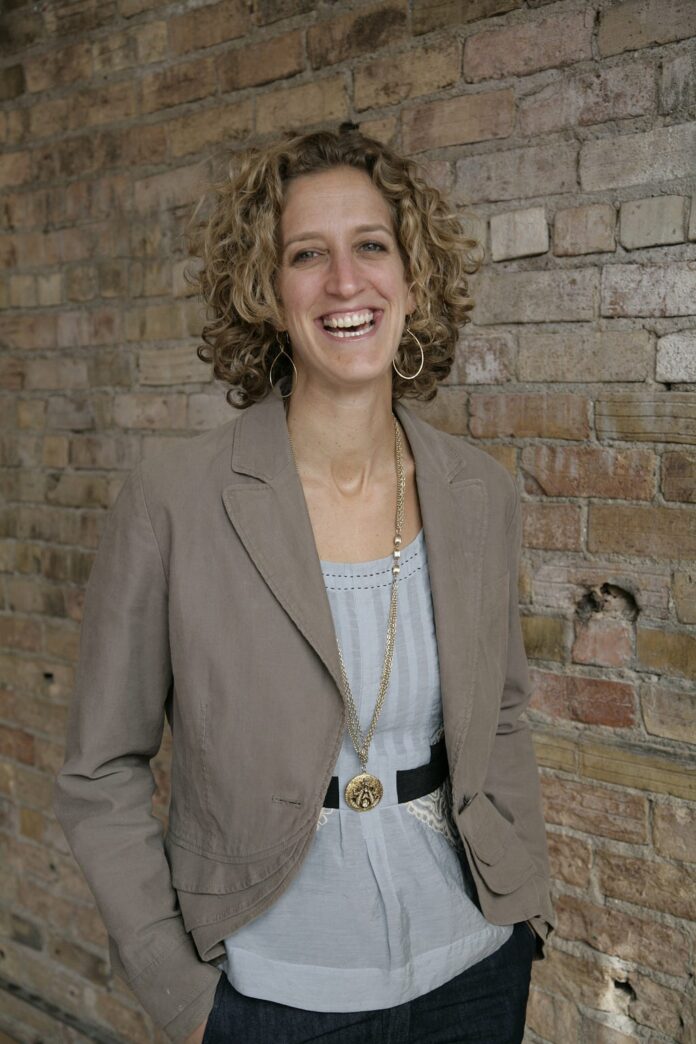Woman Philanthropists: Ellen Walthour Of Social Venture Partners On How To Leave A Lasting Legacy With A Successful Nonprofit Organization
A clear vision and mission. Ask yourself, “What is your brand promise and are you delivering on that?” It’s easy to be distracted, and if you’re not sure what you’re really good at, you can’t do the work. You will have to say no to some programs, even if you want to help.
The contributions of women philanthropists have reshaped communities and catalyzed change, yet their stories often remain untold. Women bring unique perspectives and approaches to philanthropy, using their resources, networks, and influence to address a wide range of global challenges — from education and healthcare to social justice and environmental sustainability. How do these women navigate the complexities of philanthropy to achieve meaningful impact? In this interview series, we are talking to diverse women philanthropists who have initiated impactful projects or led significant charitable endeavors, to share their insights and inspire others to take initiative and help solve pressing global and local issues. As a part of this series, we had the pleasure of interviewing Ellen Walthour.
Ellen Walthour brings more than two decades of experience in education and nonprofit leadership to her role as Executive Director of Social Venture Partners Minnesota (SVP MN). A visionary leader and strategic thinker, Ellen has dedicated her career to helping organizations deliver on their missions with clarity, purpose, and impact.
Before joining SVP MN, Ellen founded Cufflink, a consulting practice launched in 2021 to support nonprofits with strategic planning, staffing, and fundraising. Prior to that, she spent 12 years at The BrandLab, where she served first as program director then went on to lead its evolution into a multi-market organization serving more than 1,000 students annually.
Ellen’s career began in education, holding leadership roles both locally and internationally. She holds a Master’s in Education from the University of London, an MA in Teaching from National Louis University in Chicago, and a BA in English from Michigan State University.
Ellen is energized by helping people and organizations move from vision to reality. She thrives in environments where bold ideas meet strategic execution and is deeply passionate about fostering collaboration that drives meaningful, systemic change.
Thank you for making time to visit with us about a ‘top of mind’ topic. Our readers would like to get to know you a bit better. Can you please tell us about your path to your leadership role?
The organization I lead, Social Venture Partners Minnesota (SVPMN), is a nonprofit collective giving circle that connects and supports donors and youth-serving nonprofits to make a greater impact.
Before this, I led an organization, The BrandLab, which partnered with SVP. I saw that SVP’s value went beyond the money they provide. They connected me with people from different industries– business, marketing, advertising, HR, finance– who were looking at our work with fresh eyes and a different frame. SVP’s donors helped us become more efficient, and have a greater impact. Having partners who weren’t doing the work day in and day out was actually a gift. The BrandLab created new programs thanks to SVP insights. SVP gives people the opportunity to walk alongside leaders doing important work that makes a real impact in our community.
That’s what lured me away, the challenge of seeing the other side of the equation, where you’re the one giving money away! We make sure that money goes into the hands of leaders like I once was, the people doing the work day in and day out. I feel like my experience seeing how the work gets done has led me to this.
You are a successful leader. What character traits do you think were most instrumental to your success?
I’m a relationship-builder. When you’re doing this good work and you’re doing philanthropy, you’re going to meet people from all sorts of different worlds. Every one of them might have something different and crucial to offer down the road. So when you sense they are open to a connection, take the leap! It helps that it comes naturally, but I cultivate those relationships, too.
I’m not afraid to try new things. Right now, our challenge is to attract the next generation of SVPers. We’re going to take risks like our new “Together For Good” program. We’re leading a cohort of people who are interested in philanthropy through a six-month course we have created to teach them everything they need to know. It’s a big, major launch, and it could be game changing. We’ve been looking for the next generation of civic leaders, but I thought, “Why not try building the next generation?”
What’s the most interesting discovery you’ve made since you started leading your organization?
The problem isn’t what I thought it was. The problem isn’t a lack of people with money to share, or that the people with money don’t want to share it. The problem is, they aren’t sure how to start. They wonder if they should wait until they have even more money, or wait until they have time to do a lot of research or until the perfect situation magically presents itself in life. I just needed to solve the problem of helping donors get started.
Can you please tell our readers more about how you or your organization intends to make a significant social impact?
Our mission is working with youth-oriented nonprofits to give them the funding, guidance, and community connections they need to make real changes in the lives of young people. So many different organizations exist because they’ve grown out of the individual passion and knowledge of one person solving one problem, and even when they grow, they get bigger and stay specialized. But they all need funding, and they all need the perspective of people not in the trenches. That’s where we come in. Our skillset helps a great number of nonprofits.
And now we have the new “Together For Good” program. We know that the government is pulling back and without individual donors, nonprofits won’t have support. So we’re going to guide aspiring donors in a very hands-on way as they go through the collective giving and grantmaking process, offering a deep understanding of the nonprofit and grantmaking landscapes.
What makes you feel passionate about this cause more than any other?
I believe that youth need to have as many opportunities as possible, and that as a society, we bear a collective responsibility in making sure they get them. An investment in our youth really returns itself tenfold, it’s a crucial developmental stage and we can affect who these people will be during decades of adulthood by stepping in for a short amount of time right now. And it all comes back to our community, too, to have adults who can do and be more, because the right program was there at just the right time when they were growing up.
We all want to help and to live a life of purpose. What are three actions anyone could take to help address the root cause of the problem you’re trying to solve?
Donate your time, donate your talent, and donate your treasure. And do it with others! The power of doing it together is inspiring.

Based on your experience, what are the “5 Things You Need To Create A Successful & Effective Nonprofit That Leaves A Lasting Legacy?”
- A clear vision and mission. Ask yourself, “What is your brand promise and are you delivering on that?” It’s easy to be distracted, and if you’re not sure what you’re really good at, you can’t do the work. You will have to say no to some programs, even if you want to help.
- Resources. A big heart isn’t enough. You need to have the attitude that the resources are absolutely out there and that you will get the best people and you will get the funds to make your vision and mission a reality.
- Committed, passionate staff. Of course, when your work is mission-driven, you will attract people who care deeply. You have to care deeply about them, too. As with any good business, if you don’t invest in the talent of your people, nothing works.
- Strong leadership and oversight. A board of directors that cares and does the work holding you accountable is key. They should be asking questions and pushing you to deliver!
- Quantifiable results. You need to measure the program’s impact over time. That’s the way you know it works and that’s how you can show everyone–partner nonprofits, board members, donors–that their investment is making a difference.
How has the pandemic changed your definition of success?
A lot of our partners are retirees– they are traveling– and they can still engage on an impact team and do work remotely to support our nonprofit partners.
How do you get inspired after an inevitable setback?
By infecting myself with someone else’s enthusiasm! I have a group of leaders I’ve invited to join me for dinner and conversation. We get together, and when I hear the stories of what their organizations are doing, I get so inspired. At SVP, I love seeing people getting excited together about giving money. People often say that volunteering is one of the best things you can do for your soul and I think SVP does that for people.
You’re doing important work. How can our readers follow your progress online?
For more visit svpmn.org, as well as instagram.com/svpminnesota/
Follow Ellen at www.linkedin.com/in/ellen-walthour-7023b65/
Thank you for a meaningful conversation. We wish you continued success with your mission.
Woman Philanthropists: Ellen Walthour Of Social Venture Partners On How To Leave A Lasting Legacy… was originally published in Authority Magazine on Medium, where people are continuing the conversation by highlighting and responding to this story.


